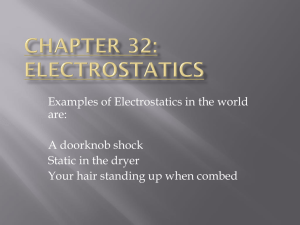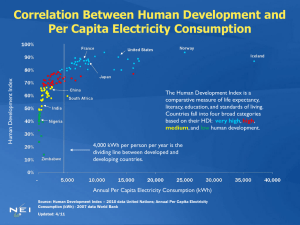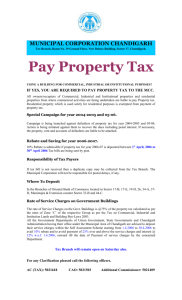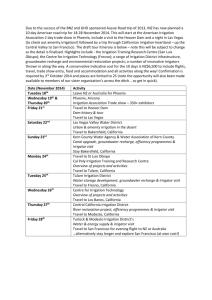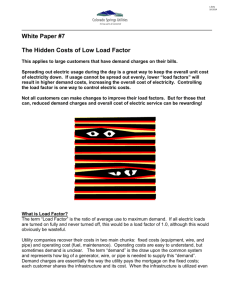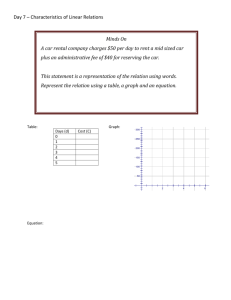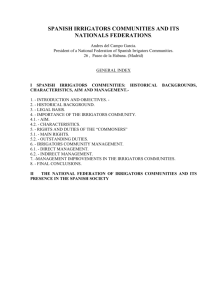Delivery pricing for irrigation – Summary We maintain a specific
advertisement
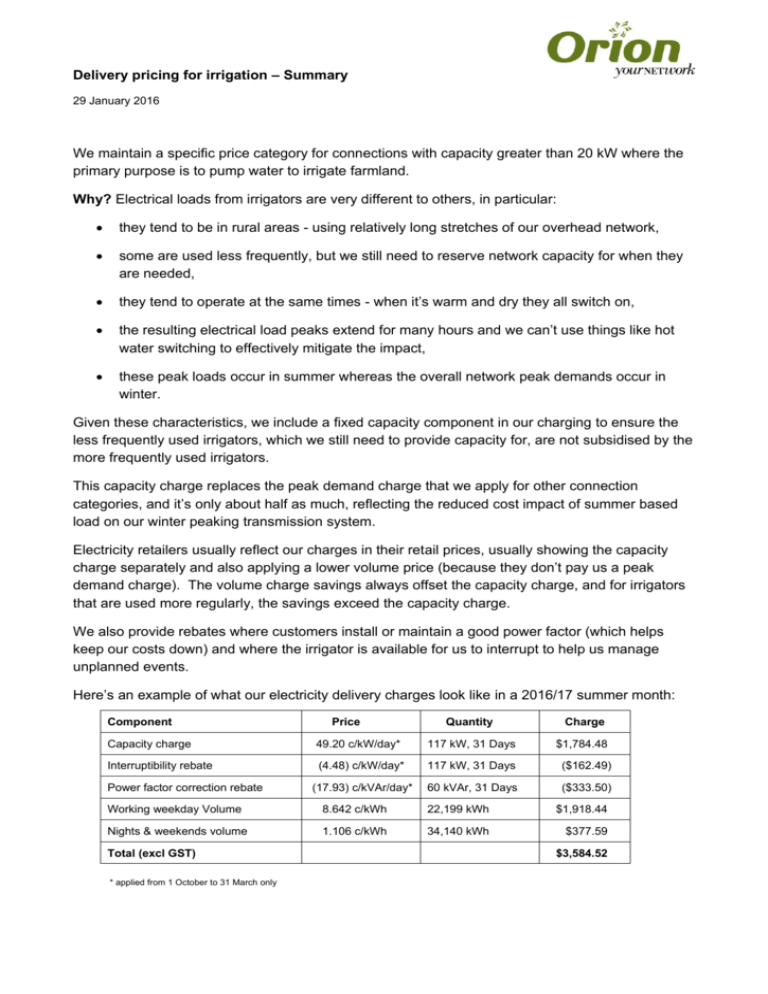
Delivery pricing for irrigation – Summary 29 January 2016 We maintain a specific price category for connections with capacity greater than 20 kW where the primary purpose is to pump water to irrigate farmland. Why? Electrical loads from irrigators are very different to others, in particular: they tend to be in rural areas - using relatively long stretches of our overhead network, some are used less frequently, but we still need to reserve network capacity for when they are needed, they tend to operate at the same times - when it’s warm and dry they all switch on, the resulting electrical load peaks extend for many hours and we can’t use things like hot water switching to effectively mitigate the impact, these peak loads occur in summer whereas the overall network peak demands occur in winter. Given these characteristics, we include a fixed capacity component in our charging to ensure the less frequently used irrigators, which we still need to provide capacity for, are not subsidised by the more frequently used irrigators. This capacity charge replaces the peak demand charge that we apply for other connection categories, and it’s only about half as much, reflecting the reduced cost impact of summer based load on our winter peaking transmission system. Electricity retailers usually reflect our charges in their retail prices, usually showing the capacity charge separately and also applying a lower volume price (because they don’t pay us a peak demand charge). The volume charge savings always offset the capacity charge, and for irrigators that are used more regularly, the savings exceed the capacity charge. We also provide rebates where customers install or maintain a good power factor (which helps keep our costs down) and where the irrigator is available for us to interrupt to help us manage unplanned events. Here’s an example of what our electricity delivery charges look like in a 2016/17 summer month: Component Price Quantity Charge $1,784.48 Capacity charge 49.20 c/kW/day* 117 kW, 31 Days Interruptibility rebate (4.48) c/kW/day* 117 kW, 31 Days ($162.49) (17.93) c/kVAr/day* 60 kVAr, 31 Days ($333.50) Power factor correction rebate Working weekday Volume 8.642 c/kWh 22,199 kWh $1,918.44 Nights & weekends volume 1.106 c/kWh 34,140 kWh $377.59 Total (excl GST) * applied from 1 October to 31 March only $3,584.52 Irrigation FAQ The capacity charge is more than I pay for energy. Why do I have to pay when I haven’t used my irrigator? It costs us the same amount to maintain your connection regardless of whether you use it. We need to reserve the capacity for you, we can’t use it for other customers, and it wouldn’t be fair for us to pass these costs on to other customers. Why do you charge the capacity charge for 6 months? I only use my irrigator for two months. We actually work out the annual cost that we need to collect through the capacity charge then divide that over 6 months. We could spread it over a shorter period but the charge would be higher so that the amount paid is the same. We think it makes sense to broadly align the charges with the irrigation season although we are aware that some irrigators use their plant for shorter periods. I just want my irrigator as a backup for another scheme – do I have to pay the same capacity charge? Yes. It costs us the same amount to maintain your connection regardless of whether you use it. At the same time you decide you need to operate your pump as a back-up, it is likely that others will be facing the same situation. So we need to reserve the capacity for you, and we can’t use it for other customers. It wouldn’t be fair for us to pass these costs on to other customers. I have a variable speed drive and always use less than the rated capacity. Can you reduce my capacity charge? Usually we can. If your electricity retailer is willing to provide us with the right metering information we can use this to establish the operating pattern and apply a lower capacity rating. The amount we can reduce it by depends on the capacity of the supply and we initially need at least one full season’s metering information for the assessment. After that we’ll revisit the figure each year (looking at the long term maximum loadings, rather than season variations). Send us an email at irrigation@oriongroup.co.nz if you would like us to consider this. The capacity charge is too much and it would be cheaper for me to use an alternative (like a generator or PTO pump) We aim for our charges to reflect the costs, and if there is a cheaper alternative, then changing might be a good move. If we discounted our service then other customers would pick up the balance of costs and that wouldn’t be fair. Why are the prices on my electricity account different to yours? Electricity retailers combine a range of costs including energy, billing, metering and other retail costs in addition to our delivery charges. Even where the items only reflect our charges, it might show as a GST inclusive amount, or it might have a loading for the prompt payment discount that is taken off at the end. Sometimes retailers’ charges get out-of-step with ours, and it’s worth checking this. You can see the chargeable quantities for your connection by entering your ICP here: www.oriongroup.co.nz/SearchICP You can see our current prices here: www.oriongroup.co.nz/DeliveryPriceSchedule What’s interruptibility? Many irrigators can cope quite well with the odd power cut, and being able to turn some power off can help us keep the supply on for your other connections and for other customers when things go wrong. We offer an “interruptibility rebate” that offsets the capacity charge for customers that let us turn the irrigator off occasionally (usually only once every few years, or less). The rebate equates to about an 8% discount on the capacity charge (see the example on the other page). If you want to sign-up for the rebate, send us an email at irrigation@oriongroup.co.nz and we’ll provide details. If your irrigator is off and you think we might have switched it off, give us a call on 0800 363 9898 to see if we have operated the interruptibility switches before calling your electrician.
